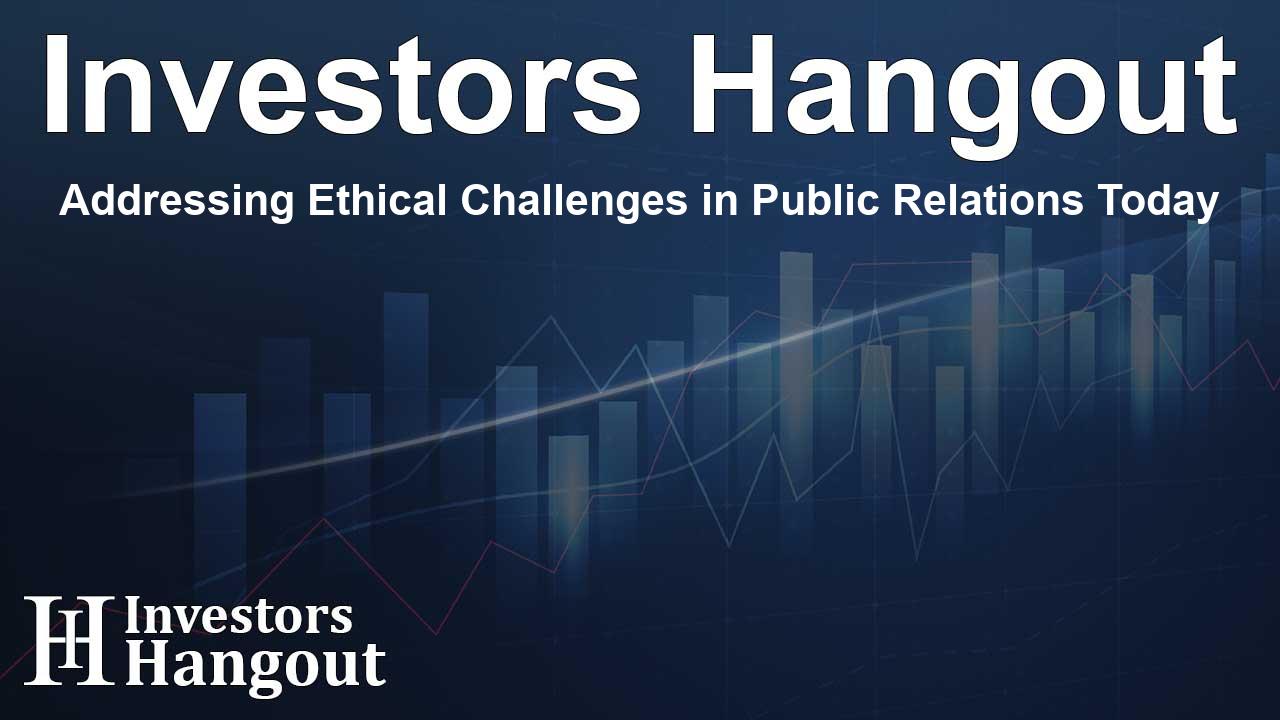Addressing Ethical Challenges in Public Relations Today

Addressing Ethical Challenges in the Public Relations Industry
In recent discussions around public relations, a concerning trend has emerged regarding ethical practices within the sector. PR leaders in various regions, particularly in countries like the U.K. and the U.S., are expressing alarm over what is termed as organizational gaslighting. This phenomenon directly affects the integrity of information shared with the media and, consequently, the public's perception of truth.
Understanding Organizational Gaslighting
Organizational gaslighting occurs when companies manipulate information to maintain a favorable image, often at the expense of honesty and transparency. This term refers to a broader pattern of behavior where truth is obscured through deceitful communication tactics. Such actions are not merely isolated incidents but indicate a systematic problem that is gaining traction in the public relations field.
Impact on Media Relations
As PR professionals navigate the complex landscape of media relations, the rise of organizational gaslighting poses significant challenges. Trust between the agency and the client is supposed to be built on transparency and mutual respect. However, when factual information is deliberately skewed or withheld, it undermines this relationship, causing potential harm to both parties involved.
Public Perception and Trust
The implications of organizational gaslighting are profound, extending beyond just industry professionals to the general public. When consumers and audiences become aware of manipulative practices, their trust in both the PR industry and the brands they represent diminishes. This loss of trust can have far-reaching effects, including decreased consumer loyalty and adverse impacts on brand reputation.
Strategies for Enhancing Ethical Standards
To address these growing concerns, it is crucial for PR agencies to focus on improving their ethical standards. Implementing robust training programs that emphasize the importance of honesty and integrity in communications can serve as a foundation for fostering a culture of accountability. Additionally, developing clear guidelines for ethical practices can help guide professionals in their daily operations, thus reinstating trust with clients and the public.
Strengthening Oversight and Accountability
Creating an environment of accountability is essential in combating unethical behaviors in public relations. Establishing internal review boards or ethics committees within PR agencies can help monitor communications and ensure that they align with industry standards. This proactive approach can prevent potential ethical violations before they escalate into larger issues.
Looking Ahead: The Future of PR Ethics
As public scrutiny of ethical practices in public relations continues to intensify, it becomes increasingly vital for professionals in the industry to reassess their values and methodologies. Embracing transparent communication methods not only safeguards the reputation of individual firms but also enhances the overall integrity of the public relations field.
Engaging in Open Conversations
Fostering open conversations about ethics within the public relations community is a significant step forward. Engaging discussions at conferences, workshops, and through social media can raise awareness about ethical challenges and encourage a collective response to improve standards across the industry.
Frequently Asked Questions
What is organizational gaslighting?
Organizational gaslighting involves the use of deceptive communication tactics by companies to manipulate truth and maintain power.
How does organizational gaslighting affect media relations?
It undermines trust between PR agencies and clients, leading to potential misinformation being propagated to the public.
Why is trust important in public relations?
Trust is crucial as it fosters transparent relationships, ensuring that information sharing is honest and beneficial for both clients and journalists.
What strategies can PR agencies implement to enhance ethics?
Agencies can develop training programs, create guidelines for ethical communications, and establish oversight committees to promote accountability.
What is the future outlook for ethics in public relations?
The public relations industry is likely to see increased scrutiny around ethical practices, encouraging professionals to adopt more transparent communication methods.
About The Author
Contact Hannah Lewis privately here. Or send an email with ATTN: Hannah Lewis as the subject to contact@investorshangout.com.
About Investors Hangout
Investors Hangout is a leading online stock forum for financial discussion and learning, offering a wide range of free tools and resources. It draws in traders of all levels, who exchange market knowledge, investigate trading tactics, and keep an eye on industry developments in real time. Featuring financial articles, stock message boards, quotes, charts, company profiles, and live news updates. Through cooperative learning and a wealth of informational resources, it helps users from novices creating their first portfolios to experts honing their techniques. Join Investors Hangout today: https://investorshangout.com/
The content of this article is based on factual, publicly available information and does not represent legal, financial, or investment advice. Investors Hangout does not offer financial advice, and the author is not a licensed financial advisor. Consult a qualified advisor before making any financial or investment decisions based on this article. This article should not be considered advice to purchase, sell, or hold any securities or other investments. If any of the material provided here is inaccurate, please contact us for corrections.
